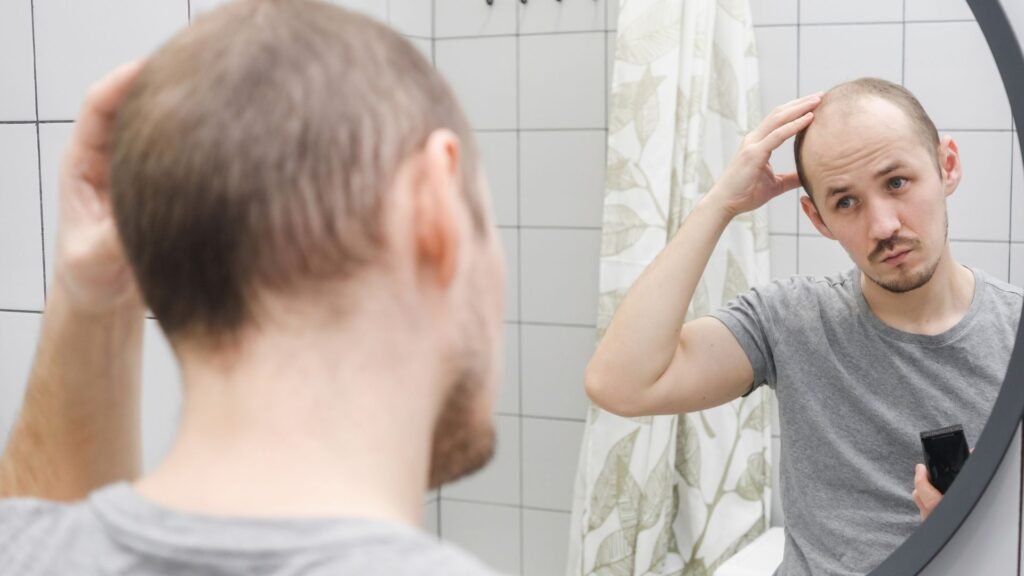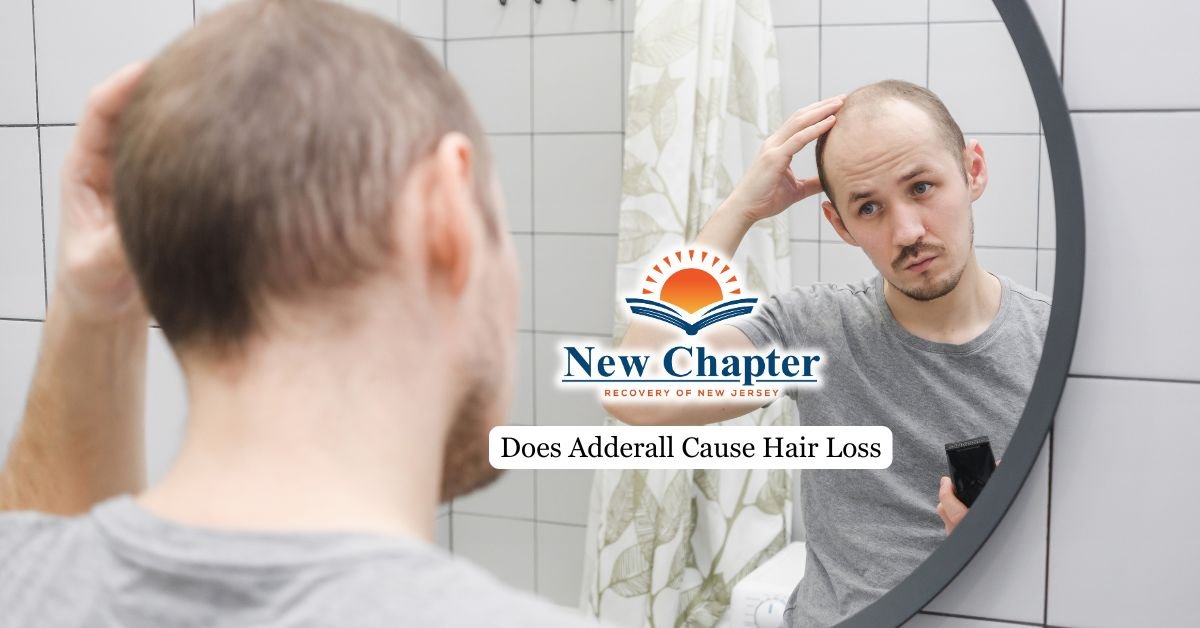Questions around the potential link between Adderall use and hair loss have become increasingly common, particularly among individuals who’ve been prescribed the medication for attention deficit hyperactivity disorder (ADHD). While some people have reported experiencing hair loss while taking Adderall, scientific clarity on the issue remains limited.
This article explores the current evidence, possible explanations, and what steps to take if you’re concerned about hair loss as a side effect of Adderall.

Is Hair Loss a Common Side Effect of Adderall?
Adderall is a prescription medication containing amphetamine and dextroamphetamine, used to manage ADHD and, at times, narcolepsy. It acts as a stimulant drug, targeting the central nervous system to boost focus and control impulsivity. Like any prescription medication, Adderall can cause side effects—including rare potential side effects affecting hair health, such as hair thinning and hair shedding.
Though not universally experienced, hair loss while taking Adderall has been reported by some individuals. This possible side effect may stem from several contributing factors related to Adderall use, including:
Nutritional Deficiencies from Loss of Appetite
One of the most frequent side effects of Adderall is loss of appetite and weight. When users consume fewer calories or nutrients over time, it can lead to deficiencies in vitamins and minerals essential for hair growth, such as biotin, zinc, and iron. This nutritional gap may lead to hair loss or contribute to hair loss indirectly through weakened hair follicles.
Increased Stress and Changes in the Hair Growth Cycle
Stimulants like Adderall can heighten anxiety or trigger stress responses, especially in those who are not diagnosed with ADHD or are misusing the medication. Stress is a known cause of hair loss, often pushing the hair prematurely into the shedding phase of the hair growth cycle, a condition known as telogen effluvium. This may result in noticeable hair thinning or increased shedding.
Hormonal or Metabolic Disruption
Though less common, Adderall may indirectly affect hormones or metabolic processes that regulate hair growth. When combined with existing hormonal imbalances or underlying health conditions, using Adderall could worsen hair health or interrupt the normal function of hair follicles.

Adderall Misuse and Addiction
Long-term misuse or overuse of Adderall—especially at high doses—can exacerbate many of the above risk factors. Adderall addiction often involves poor nutrition, chronic stress, disrupted sleep, and compulsive behaviors, all of which can significantly impact hair health. In severe cases, the body’s overall condition deteriorates, potentially leading to significant hair loss or patchy hair loss associated with physical and emotional strain.
If the use of this prescription drug has escalated into dependence, seeking professional treatment for Adderall addiction that addresses both the physical and psychological impacts of substance abuse will help you regain control of your health, well-being, and confidence, from the inside out.
How Does Adderall Affect Hair Growth?
Adderall may disrupt the normal hair growth cycle. When the hair growth cycle is accelerated or disrupted by stimulant medications like Adderall, hair follicles may enter a “resting phase” prematurely, resulting in hair loss called telogen effluvium. Notably, this type of hair loss is usually diffuse, meaning it causes overall thinning hair rather than distinct bald spots.
The good news is that telogen effluvium is generally reversible: if the medication is stopped or adjusted, hair regrowth is often possible. Still, if you’re experiencing hair loss from Adderall, speak with a doctor who specializes in hair loss or ADHD medications before making any changes
What Should You Do If You Experience Hair Loss
If you notice hair thinning, increased hair shedding, or patchy hair loss while taking Adderall, consider these steps:
- Discuss all side effects of Adderall use with your prescribing doctor or a specialist in hair loss—including possible side effects and risk of hair loss associated with Adderall.
- Ask your doctor about testing for nutritional deficiencies or adjusting your dose to reduce risk of side effects like loss of appetite, weight loss, and hair loss from Adderall.
- Consider alternatives to Adderall if the association between Adderall and hair loss seems likely and adjusting your regimen does not help.
- Prioritize good hair care and healthy nutrition as they are essential for healthy hair growth, even if you continue using Adderall.
- Address behaviors such as hair pulling or high stress, which may contribute to hair loss, with mental health support if necessary.
Final Thoughts from New Chapter Recovery
Hair loss while taking Adderall may not be widely documented, but many individuals report thinning hair or hair shedding as a potential side effect. Whether due to stress, loss of appetite, or other factors associated with Adderall use, it’s a concern worth taking seriously—especially when paired with signs of substance misuse.
If you’re struggling with Adderall-related hair loss or signs of stimulant addiction, you’re not alone. New Chapter Recovery in Troy Hills, New Jersey offers specialized Adderall addiction treatment, helping you address both the physical and emotional toll while supporting long-term recovery and overall wellness.






